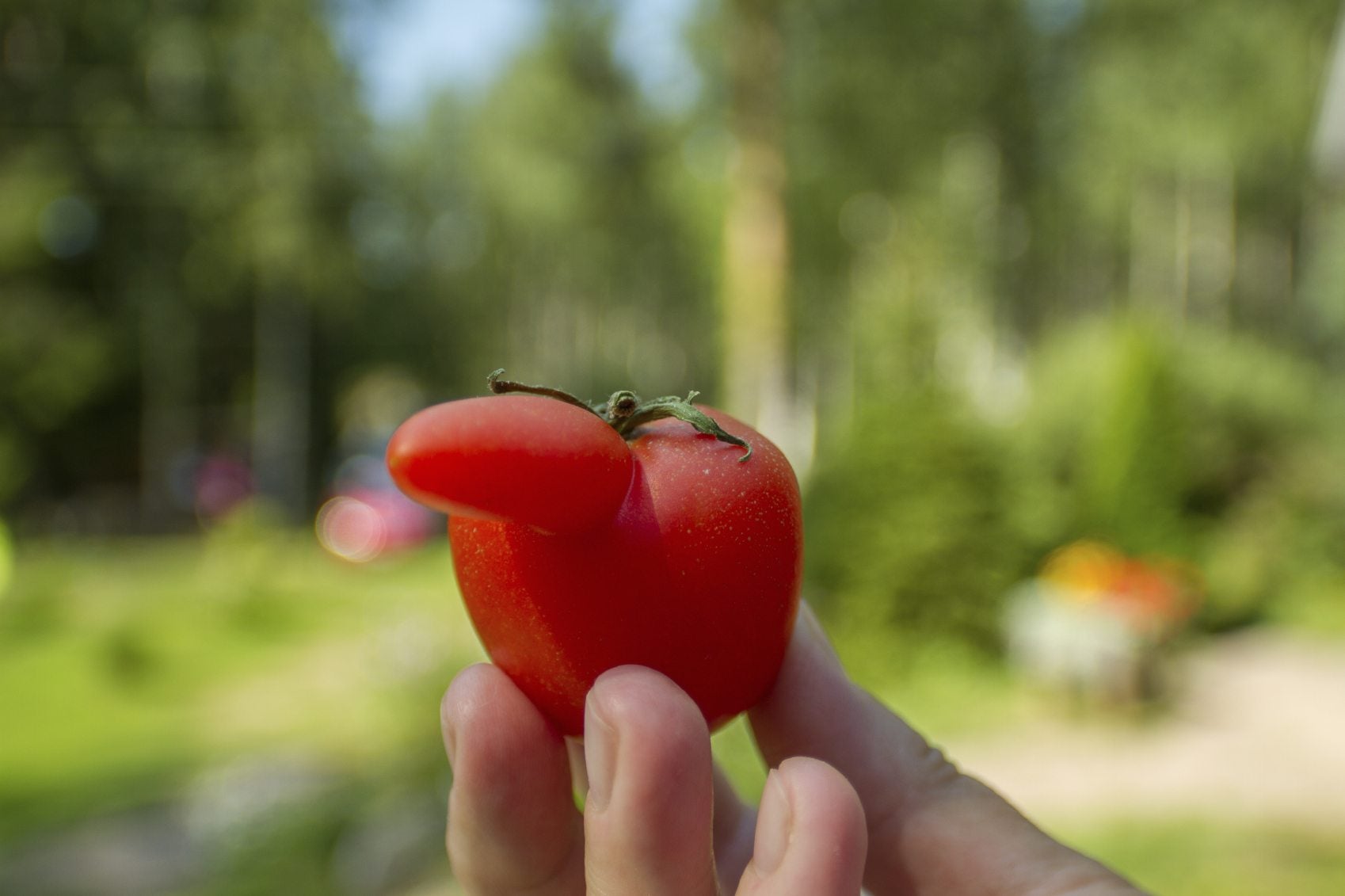
If you have only ever purchased produce from a supermarket, then you expect ramrod straight carrots, perfectly rounded tomatoes, and smooth cukes. For those of us who grow our own veggies, we know that perfection isn’t always attainable nor is it necessarily desirable. A great example is weirdly shaped tomatoes. Unusual tomatoes are often more the norm than otherwise. What causes deformed tomato fruit?
Tomato Fruit Problems
Almost every gardener has tried at one time or another to grow tomatoes. Most of us then, know that tomatoes can be rife with tomato fruit problems. These can be the result of a bacterial or fungal virus, insect infestation, mineral deficiency, or environmental stress such as lack of water. Some problems affect the entire fruit while others affect the top and shoulders, the blossom end, the stem end, or the calyx. Many of these problems result in tomato fruit deformities which may not always make the fruit inedible.
Tomato Fruit Deformities
Catfacing is a common tomato issue that has nothing to do with cats. Catfacing results in puckered or misshapen fruit and can happen to strawberries as well. This occurs when temps drop below 50 degrees F. (10 C.). The cooler weather interferes with pollination and causes the blossom to stick to developing fruit. This keeps part of the fruit from developing while another part does. You end up with some amazingly odd-looking fruit, but it doesn’t detract from their taste. In fact, it happens most often with large heirloom tomatoes, and they taste just as delicious. Sunscald may also cause unusual looking tomatoes. They won’t be as odd as catfaced tomatoes, but the skin will develop a sunburned spot. It happens most often on green fruit and once the fruit ripens forms a gray, papery spot. Too much water after a dry spell can cause the skin to split (known as cracking), also leaving you with deformed tomato fruit. Eat any split tomatoes right away so they don’t rot or get infested with insects. Many other weather events can cause problems with tomatoes, from blossom end rot to yellow shoulder and zippering. Of course, any number of bacterial, fungal, or viral infections can affect the way the fruit looks as well. Fungal infections that can cause fruit deformities include:
Tomato problems that can affect the look, as well as the taste of the fruit, are:
We haven’t even mentioned all the insects that can affect the look of the fruit. I’m saving the best one for last though.
Deformed Tomato Fruit Noses
Have you ever seen a tomato with a “nose” on it? Such weirdly shaped tomatoes may have what looks like horns as well. What causes tomato noses? Well, it’s a physiological/genetic disorder that occurs in about 1 out of every 1,000 plants. Basically, the problem arises when the fruit is still microscopic. A few cells divide incorrectly and make an extra fruit locule. When you slice into a tomato, they have four or six obvious segments, which are called locules. As the tomato grows, the genetic mutation that occurred when it was microscopic grows with the fruit until eventually, you see a mature tomato with a ‘nose’ or horns. The environment has to do with the genetic mutations. Extended temps of above 90 degrees F. (32 C.) and over 82 to 85 degrees F. (27-29 C.) at night cause this deformity. It doesn’t necessarily affect the entire plant; in fact, usually, only one or two fruits are affected. This also happens more often with older heirloom varieties. The good news is that it will quit happening when temps moderate and the resulting fruit is quite amusing as well as perfectly edible.
Sign up for the Gardening Know How newsletter today and receive a free copy of our e-book "How to Grow Delicious Tomatoes".

Amy Grant has been gardening for 30 years and writing for 15. A professional chef and caterer, Amy's area of expertise is culinary gardening.
